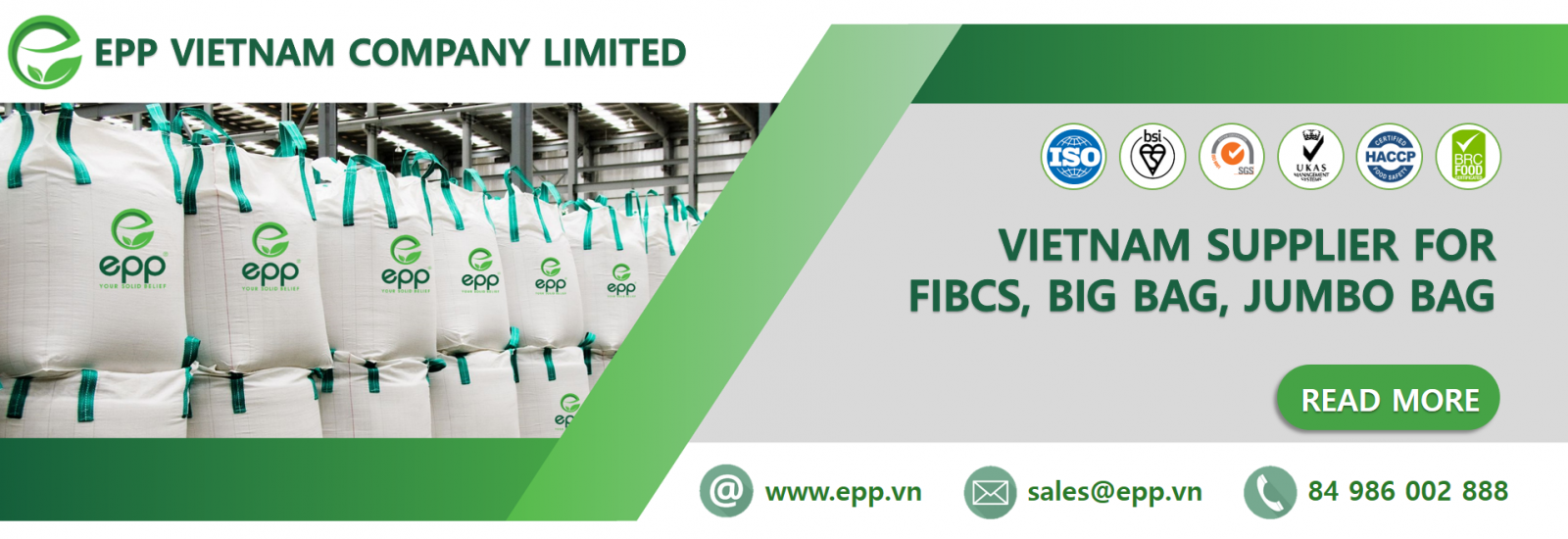Exporting FIBC bags is a complicated process that requires many documents to be prepared for customs clearance. Bulk bags have many advantages such as saving space, easy to transport, store and reuse. Therefore, Vietnam's export demand for these flexible packaging bags is increasing. In this article, we will share about customs regulations on exporting PP jumbo bags.
What is exporting FIBC bags?
Exporting bulk bags or FIBCs (Flexible Intermediate Bulk Containers) is the process of selling and transporting FIBC bags from one country to another. The export process of jumbo bags can involve several steps, including bag production, packaging, shipping to port, completion of customs formalities, and transportation of bags by sea, air or land to receiving country.
.jpg)
FIBC (Flexible Intermediate Bulk Container) is a type of bulk packaging commonly used in the shipping and storage industry. Jumbo bag for salE are commonly used to pack products such as plastic granules, salt, bran, chemicals, and agricultural products. Thanks to their high load-carrying capacity and flexibility, FIBC super sacks have become an efficient and cost-effective solution for the transportation of goods.
Customs regulations on exporting FIBC bags
When exporting PP big bags, it is necessary to comply with customs regulations to ensure a smooth and legal export process. Here are some necessary customs procedures when exporting jumbo bags:
Export business registration
Before you start exporting FIBC packaging, you need to register your export business at a competent state management agency, such as the Department of Industry and Trade or the Department of Customs. This registration process requires you to provide information about your company, commodity industry and related documents.
Determine the export profile code
Each shipment of exported FIBC bags must have a separate export file code to track the processing at the customs office. This export record code usually includes information such as the exporting company name, type of goods, quantity, value and destination.
Export registration and customs declaration
After having the export file code, you need to register for the export of goods and make a customs declaration for the shipment of FIBC bags. This is done through the customs declaration system of the customs authority. During the registration and declaration process, you must provide detailed information about the goods, value, quantity, origin and other relevant documents.
Check and pay taxes
After completing the registration and customs declaration, the shipment of FIBC bags will be inspected by the customs authority. This inspection process is intended to verify the information and quality of the goods before export. If there are no problems during the inspection, you will be required to pay taxes and related charges before the shipment is allowed to be exported.
Make an export record
After completing the customs procedures and paying taxes, you need to make an export record at the customs office. This record is a document certifying that the export of FIBC bags has been completed in accordance with customs regulations.

Handling shipping documents once the export record is in place, you need to prepare shipping documents to deliver the shipment of FIBC bags to the destination. This document includes the export invoice, shipping invoice, insurance invoice and other related documents. Ensure that all information on shipping documents is correct and in compliance with customs regulations.
Shipment tracking in transit
During transit, you should track your bulk bag shipment to ensure it is shipped safely and on time. Provide shipping information to relevant parties, including shipping companies, customs authorities and consignees.
Complete import procedures at the destination
When the shipment of FIBC bags arrives at the destination, the customs office at that point will carry out import procedures. The consignee needs to provide the necessary documents and information to complete the import process. These procedures may include inspection of goods, verification of information and payment of import duties.
Exporting FIBC bags requires proper compliance with customs procedures to ensure a successful and legal shipment of goods. By complying with these regulations, you can efficiently export jumbo bags and ensure your business runs smoothly. If you want to buy quality jumbo bags for export, you can contact EPP at the address below.
🌐 Address: Central Lake 1 Building, Aqua Bay, Ecopark, Phung Cong Commune, Van Giang, Hung Yen.
🌐 Website: https://epp.vn - https://eppvietnam.trustpass.alibaba.com
📲 +84 986 002 888 - sales@epp.vn.



